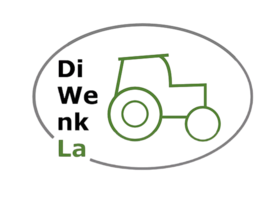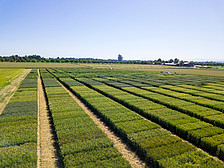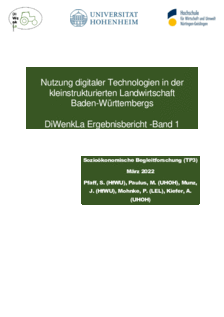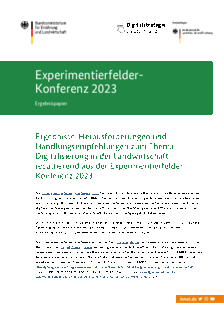Major Objectives
The primary goals of the DiWenkLa project include:
- Developing and testing digital technologies for small-scale agriculture, including automation, plant modeling, sustainability certification, grassland management, feeding, livestock management, and drone technology.
- Establishing digital experimental units in collaboration with local farms and research institutions to evaluate the practical applicability of these technologies.
- Empowering small-scale farms to access processing, trade, and end consumers more autonomously and cost-effectively through digital means.
- Identifying and addressing factors that promote or hinder innovation adoption in small-scale agricultural settings.
- Creating resilient digital value chains from farmers to end-users, ensuring sustainability and competitiveness in the agricultural sector.
Project Partner
The DiWenkLa project is a collaborative effort involving:
- University of Hohenheim (UHOH): Leading research on digitalization in intensive arable farming and grassland and cattle farming systems.
- Hochschule für Wirtschaft und Umwelt Nürtingen-Geislingen (HfWU): Focusing on sustainability management, knowledge transfer, and equine management.
- Landwirtschaftliche Landesanstalten Baden-Württemberg: Including institutions like the Haupt- und Landgestüt Marbach, contributing expertise in various agricultural domains.
- Local agricultural businesses and stakeholders: Participating in the development and testing of digital solutions within real-world farming environments.






